Doctor en nutrición y producción de Rumiantes de la Universidad Federal de Lavras (Brasil) y Zootecnista de la Universidad de Sucre. Linea de investigación en programación fetal. Interesado en entender como vacas lidan con la restricción nutricional durante la gestación para soportar el crecimiento fetal. Por tal razón he trabajado en conocer los cambios específicos de las matrices durante la gestación, así como los factores que contribuyen al lento crecimiento y desarrollo embrionario. El conocimiento obtenido por medio de está línea de investigación ayudará a los investigadores y/o productores a identificar estrategias e intervenciones de manejo para aumentar la eficiencia reproductiva y mitigar las posibles pérdidas de producción asociadas con las consecuencias de programar la descendencia a través del entorno materno en todas las especies de interes zootecnico. Experiencia también en alimentos y alimentación y producción de bovinos en sistemas silvopastoriles.
PROGRAMA: Medicina Veterinaria y Zootecnia (Cartagena)
CATEGORÍA MINCIENCIAS:
NIVEL DE FORMACIÓN: Doctorado
LINEAS DE TRABAJO:
PRODUCTOS DESTACADOS
Diurnal ingestive behavior and heat stress in cows grazing in silvopastoral systems and in a tree-less pasture.
Fecha de publicación: 03/03/2017
The aim of this study was to assess the effect of silvopastoral systems in daytime feeding behavior changes as response to heat stress. Twelve crossbred cows Romosinuano × Holstein × Zebu were evaluated with an average weight of 436±64.2 kg and 56±28 days in milk. The direct observation methodology to record activities such as grazing, rumination, walk, resting and water consumption was used to determine the diurnal feeding behavior. To determine the effect of climate, environmental temperature (TA) and relative humidity (HR) were registered, and both were used to calculate the Temperature-Humidity Index (ITH). An effect of the interaction treatment × time on TA and HR (p <0.05) was observed; TA was 36.23 and 36.69°C in the treatments Pastures and pastures-shrub P-Arbust, respectively. There was effect of treatment (p<0.05) on ITH indicating that silvopastoral systems with tree cover recorded up to 2.0 and 2.7 units lower than tree-less prairie and P-Arbust, respectively. Significant effect of treatment (p<0.05) on grazing time and rest time was observed. The treatment Pasto recorded 1.86 hours less than P-Arbor and P-Arbust-Arbor treatments. The Pasto treatment showed more time spent resting (2.96 h). A trend (p=0.098) was observed in the time spent on water consumption. The observed results showed the environmental effect on behavior changes to heat stress, and the evidence that the in the silvopastoral systems were more time on grazing and less stress activities.
Más información ⇨
- « Anterior
- 1
- …
- 11
- 12
- 13
- 14
- Siguiente »

